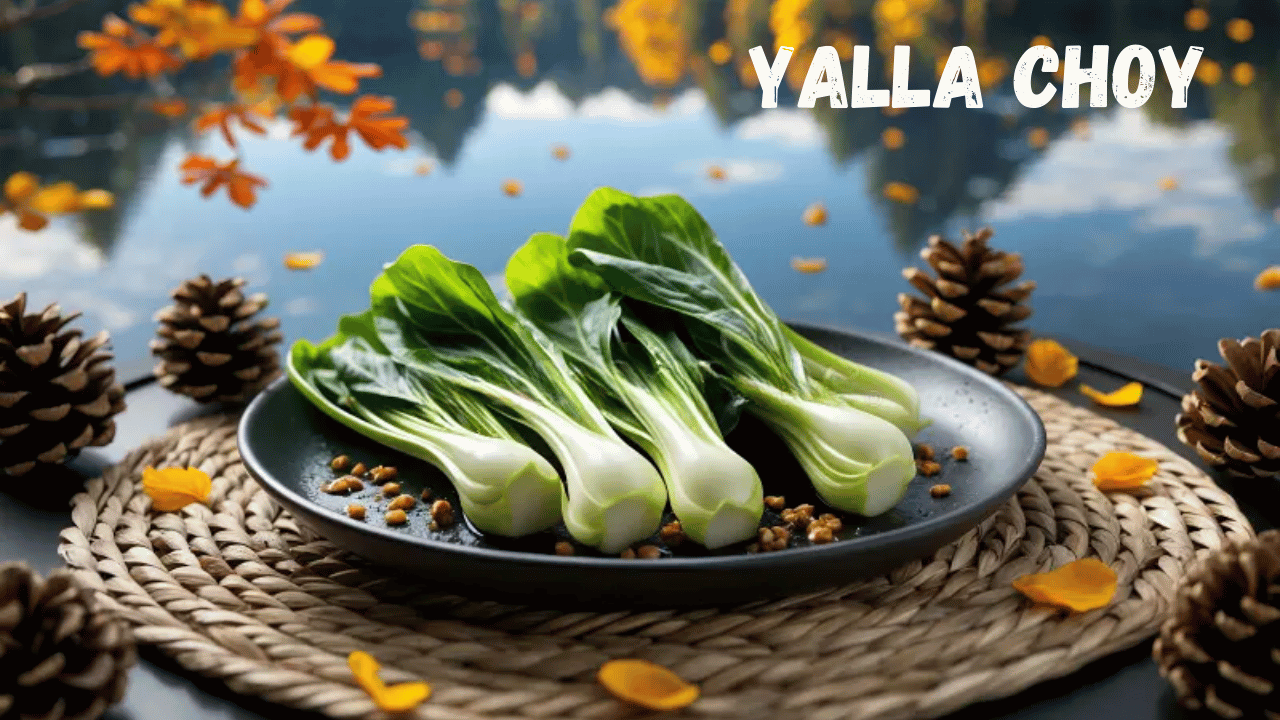Language is a living, breathing force that evolves every day, shaped by culture, travel, food, and digital communication. Among the many playful terms that surface online, one phrase is beginning to catch attention across different communities: (yalla choy). This quirky combination of words may not be familiar to everyone, but it carries a vibrant mix of cultural meanings and imaginative possibilities. From its linguistic roots to its potential as a culinary or branding concept, yalla choy has the charm to become more than just a passing trend.
In this article, we’ll break down what the phrase means, explore its origins, look at its social and digital impact, and even imagine how it can inspire recipes, branding, and creative expression. Whether you’re curious about language, love global food fusions, or simply enjoy learning about new cultural phrases, this deep dive will give you everything you need to know about yalla choy.
The Roots of the Word “Yalla”
To understand half of this unique phrase, it’s important to start with “yalla.” This word comes from Arabic and is widely used across the Middle East. It translates loosely to “let’s go,” “hurry up,” or “come on.” It’s both practical and emotional, often used with warmth, urgency, or encouragement.
For example:
- Parents might say “yalla” to hurry their children along.
- Friends may use it when leaving together: “Yalla, let’s go.”
- It can also be playful, like “Yalla, habibi” meaning “Come on, my friend.”
“Yalla” has also made its way into global speech through music, film, and everyday multicultural exchanges. Its short, punchy sound makes it easy to adopt and remember.
The Meaning of “Choy”
The second half of the phrase, “choy,” sparks multiple cultural associations. In Cantonese, “choy” refers to leafy greens such as bok choy, a popular vegetable in Asian cuisine. Meanwhile, in South Asian and Middle Eastern contexts, it echoes the word “chai,” meaning tea. Both associations connect to food and culture, which makes the phrase versatile and visually rich.
When combined with “yalla,” it feels like a creative collision between two cultural staples: an Arabic expression of energy and a food-related Asian term. Together, yalla choy can be seen as “let’s go, tea,” “let’s go greens,” or simply “let’s go fresh.”
A Phrase of Cultural Fusion
At its heart, yalla choy is a mash-up. And mash-ups are powerful because they symbolize global connection. It represents how phrases from different languages can merge to create something new and exciting.
This type of fusion reflects modern life: social media memes, cross-cultural communities, and the blending of traditions across food, art, and conversation. Just like “aloha,” “ciao,” or “namaste” have crossed cultural lines, yalla choy has the potential to grow into a recognizable phrase that carries both playfulness and meaning.
Why People Love Catchy Cross-Cultural Phrases
There’s a reason phrases like this gain traction online. Catchy cultural blends often go viral because:
- They’re short and easy to say. Yalla choy has just four syllables and flows naturally.
- They sound rhythmic. Its bounce makes it fun to repeat.
- They feel global. By mixing cultures, they resonate with diverse audiences.
- They spark curiosity. People want to know what it means, leading to shares and conversations.
This is why yalla choy fits the mold of an internet-friendly expression with branding potential.
Yalla Choy and Digital Culture
Social media thrives on phrases that pack personality. From TikTok captions to Instagram hashtags, a phrase like yalla choy can serve as a versatile catchphrase. Influencers might use it to hype up content, friends may adopt it in group chats, and meme creators can easily twist it into humor.
The digital world loves cultural layering, and phrases that pull from multiple languages often gain traction because they reflect global lifestyles. In this sense, yalla choy isn’t just a phrase—it’s digital slang in the making.
Yalla Choy in Food and Culinary Imagination
One of the most fascinating ways this phrase is interpreted is through food. Since “choy” refers to vegetables in Cantonese and recalls tea in South Asia, many creators imagine it as a culinary concept.
Picture a “Yalla Choy” café or food truck:
- Fusion Dishes: Shawarma bao buns, falafel sushi rolls, hummus-kimchi dip.
- Signature Drink: Middle Eastern cardamom tea blended with Asian matcha.
- Playful Branding: A menu that encourages customers to “yalla” or hurry up and try new flavors.
This food-based interpretation adds depth, making yalla choy more than just words—it becomes an idea that people can taste and share.
The Branding Potential of Yalla Choy
In the world of business and branding, unique names are everything. A phrase like yalla choy has the qualities that could make it successful:
- Memorable: It’s short and rhythmic.
- Playful: It sparks a smile.
- Global Appeal: It carries multicultural flair.
It could be the name of a restaurant, a lifestyle brand, a podcast, or even a social movement. Just like “Eat Pray Love” or “Just Do It,” phrases that mix energy with culture often become powerful slogans.
The Emotional Power Behind the Phrase
What makes yalla choy more than just wordplay is the emotion it carries. “Yalla” brings urgency, energy, and togetherness. “Choy” brings freshness, nourishment, and warmth. Together, they capture a spirit of moving forward with vitality.
This is why the phrase resonates: it’s not only catchy but also uplifting. It encourages action and freshness at the same time.
Language, Identity, and Global Exchange
The rise of phrases like yalla choy also highlights something bigger: the way language travels. As people migrate, connect online, and share cultures, words jump across borders. A phrase doesn’t need to belong to one culture anymore—it can belong to everyone who uses it.
That’s the beauty of global communication. Just as English borrows “kindergarten” from German and “yoga” from Sanskrit, new hybrid phrases like yalla choy remind us that identity is ever-evolving.
How Communities Interpret Yalla Choy
Different people will hear the phrase in different ways:
- Food Lovers: They might picture leafy greens or creative recipes.
- Language Enthusiasts: They’ll see it as a cultural blend worth studying.
- Digital Natives: They’ll adopt it as a playful slogan or hashtag.
- Entrepreneurs: They’ll spot the branding opportunities.
Its flexibility is exactly what makes it compelling.
A Vision for the Future of Yalla Choy
Where could this phrase go from here? It has the potential to become:
- A viral meme on TikTok.
- The name of a multicultural café.
- A theme for a food festival.
- A catchphrase in advertising.
- A symbol of global unity in language.
Its future will depend on how people choose to use it—but all signs point to it spreading further.
Conclusion
At first glance, yalla choy may seem like a random pairing of words. But a closer look reveals something much richer. With roots in Arabic and Asian languages, it blends urgency with freshness, energy with culture. It has potential in food, branding, and digital slang, and it reflects the beauty of cultural fusion in our globalized world.
Whether it becomes a meme, a brand, or simply a phrase you use with friends, yalla choy is more than just words—it’s an idea of movement, vitality, and togetherness.
FAQs About Yalla Choy
1. What does yalla choy mean?
It combines “yalla” (Arabic for “let’s go” or “come on”) with “choy” (a term linked to vegetables or tea). Together, it conveys energy, freshness, and cultural blending.
2. Is yalla choy a real phrase used in daily life?
While it’s not a traditional phrase, it is emerging in digital culture as a playful mash-up used in slang, memes, and creative projects.
3. Can yalla choy be used in branding or business?
Yes, its short, catchy sound and multicultural vibe make it ideal for restaurants, cafés, lifestyle brands, or even social campaigns.
4. Why is yalla choy popular online?
Because it’s fun, easy to say, and sparks curiosity. People enjoy catchy cross-cultural phrases that feel inclusive and modern.
5. How can yalla choy be connected to food?
Since “choy” relates to vegetables and tea, many imagine it as a food concept. It inspires ideas for fusion recipes and creative café menus.
Read More: Afruimwagens: Complete Guide to Their Meaning, Uses, Types, and Benefits

